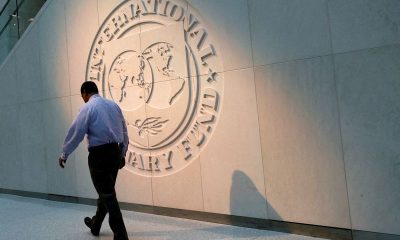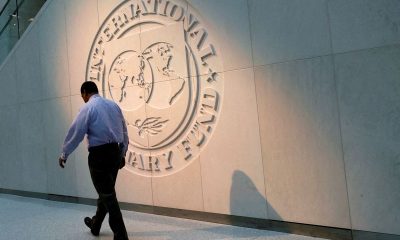Stock Markets
Microsoft has urged lawmakers and companies to increase regulation of AI

At a conference in Washington, Microsoft President Brad Smith called on governments and corporations worldwide to intensify their efforts in response to the rapid development of artificial intelligence technology.
Microsoft has advocated for the implementation of “safety brakes” for AI systems that control critical infrastructure, as well as the establishment of a comprehensive regulatory framework for AI.
“AI may be the most significant technological advancement of our lifetime. Today, we announced a 5-point plan to address current and emerging issues related to AI, bringing together the public and private sectors to ensure that this tool benefits all of society.”
The accelerated development of AI has led to several drawbacks, including privacy threats, job losses due to automation in manufacturing, and the spread of fraudulent and misleading videos on social media.
The Microsoft CEO emphasized that governments and AI companies bear the responsibility for mitigating the risks associated with unchecked AI development.
Simultaneously, Microsoft acknowledges its own responsibility by undertaking to implement safeguards related to AI.
It’s worth noting that Sam Altman, the founder and CEO of OpenAI, shares the same opinion. He recently spoke before Congress, advocating for the establishment of a federal oversight agency that would issue licenses to companies involved in artificial intelligence.
Earlier we reported that NVIDIA will have to justify its record share price rise on the ground.
Stock Markets
Rogers Sugar Inc.: Conference Call “ 2nd Quarter 2024 Results

VANCOUVER, British Columbia, April 19, 2024 (GLOBE NEWSWIRE) — Rogers (NYSE:) Sugar Inc. (RSI) will be holding a conference call to discuss their 2024 second quarter results on Thursday, May 9, 2024, at 17h30 (Eastern Time).
The conference call will be chaired by Mr. Michael Walton, Chief Executive Officer and Mr. Jean-Sébastien Couillard, Chief Financial Officer.
If you wish to participate, please dial 1-800-717-1738. A recording of the conference call will be accessible shortly after the conference, by dialing 1-877-674-7070, access code 36162#. This recording will be available until June 9, 2024.
For further information:
Jean-Sébastien Couillard Vice President of Finance, Chief Financial Officer and Corporate Secretary Tel.: (514) 940-4350 www.lanticrogers.com
Source: Rogers Sugar Inc.
Stock Markets
IMF says Latam, Caribbean economies resilient but more growth is needed
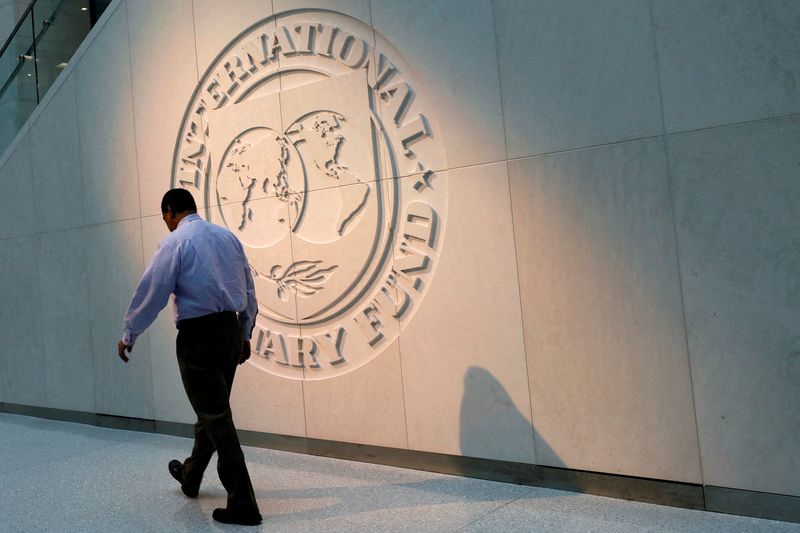
By Rodrigo Campos
(Reuters) – Stronger macroeconomic policy is partly behind the resilience of economies across Latin America and the Caribbean, the International Monetary Fund said Friday in its regional review of the Western Hemisphere.
The fund however warned that growth rates remain lackluster and investment levels remain historically low.
And even as unemployment across the region is also at historically low levels, “with most economies operating near potential… activity in the region has been generally moderating in recent quarters,” said in prepared remarks the IMF’s director for the Western Hemisphere, Rodrigo Valdes.
“We see risks around this baseline projection as broadly balanced, reflecting also more balanced global risks,” Valdes said.
The global lender sees inflation continuing to recede across the region, partly due to swift past action from central banks. In that view, the fund considers monetary policy easing should continue, though .
“It will be important to carefully calibrate the pace of easing to strike a balance between durably bringing inflation back to target, in the final stretch, and avoiding an undue economic contraction,” said Valdes.
Earlier this week, the IMF slightly lifted its 2024 view on economic output growth for Latam and the Caribbean to 2.0% from its 1.9% January forecast, in both cases calling for a deceleration compared with last year’s 2.3% growth rate.
The overall slowdown in growth is due in part to smaller rates of growth in the region’s largest economies, Mexico and Brazil.
PUBLIC DEBT AN ISSUE
Even as most economies in the region have withdrawn the stimulus brought by the pandemic’s economic shock, the fund is concerned that fiscal consolidation plans are now being put on hold.
“With public debt at high levels, fiscal policy should focus on rebuilding policy space,” Valdes said. “Timely fiscal tightening will also allow for faster normalization of monetary policy.”
Valdes referred to the “urgency” to speed up growth in the region, which at an average 2% in the medium term is not enough a pace to allow or spread-out prosperity.
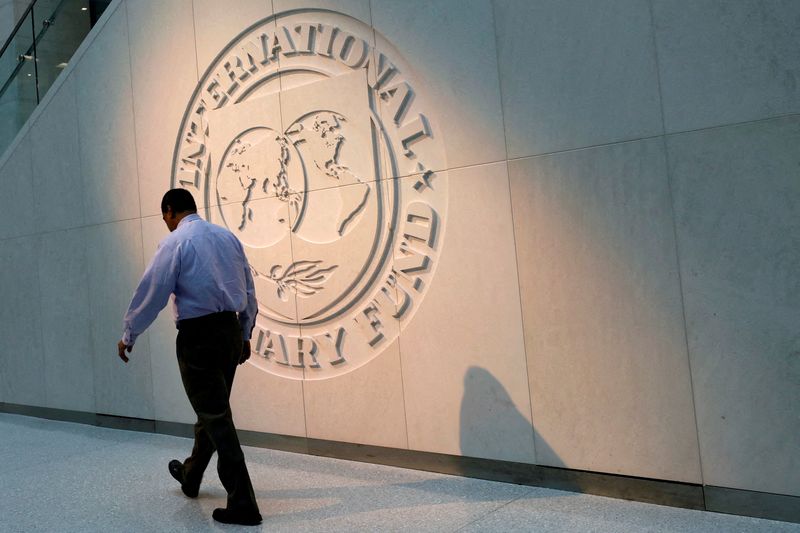
With the region’s “high levels of poverty and inequality,” Valdes said, “maintaining social cohesion should be a centerpiece of fiscal consolidation plans.”
Last week, the World Bank downgraded its 2024 economic growth forecast for Latin America and the Caribbean to 1.6% from its previous 2.3% estimate, saying the region continues to lag growth rates registered in other parts of the world.
Stock Markets
Iran signals no plan to retaliate against Israel after drone attack
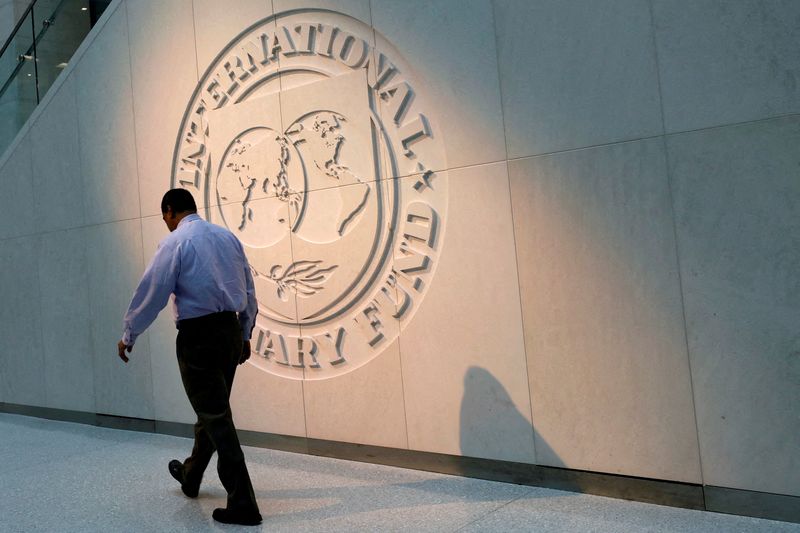
By Parisa Hafezi and James Mackenzie
DUBAI/JERUSALEM (Reuters) -Explosions echoed over an Iranian city on Friday in what sources said was an Israeli attack, but Tehran played down the incident and indicated it had no plans for retaliation – a response that appeared gauged towards averting region-wide war.
Iran’s foreign minister said the drones, which the sources said Israel launched against the city of Isfahan, were “mini-drones” and that they had caused no damage or casualties.
The limited scale of the attack and Iran’s muted response appeared to signal a successful effort by diplomats who have been working to avert all-out war since an Iranian drone and missile attack on Israel on Saturday.
Iranian media and officials described a small number of explosions, which they said resulted from air defences hitting three drones over Isfahan in central Iran. They referred to the incident as an attack by “infiltrators”, rather than by Israel, obviating the need for retaliation.
A senior Iranian official told Reuters there were no plans to respond against Israel for the incident.
“The foreign source of the incident has not been confirmed. We have not received any external attack, and the discussion leans more towards infiltration than attack,” the official said.
Iranian Foreign Minister Hossein Amirabdollahian was also cautious in comments to envoys of Muslim countries in New York.
“The Zionist regime’s (Israel’s) media supporters, in a desperate effort, tried to make victory out of their defeat, while the downed mini-drones have not caused any damage or casualties,” Amirabdollahian was quoted as saying by Iranian media.
Israel said nothing about the incident and its ally Washington refused to be drawn.
Asked about it repeatedly at a press conference in Italy, U.S. Secretary of State Antony Blinken said he would not comment apart from saying that the United States was committed to Israel’s security but not involved in any offensive operations.
“Israel tried to calibrate between the need to respond and a desire not to enter into a cycle of action and counter reaction that would just escalate endlessly,” said Itamar Rabinovich, a former Israeli ambassador to Washington.
Violence between Israel and Iranian proxies across the Middle East has intensified throughout six months of bloodshed in Gaza, raising fears the longstanding foes’ shadow war could spiral into a direct conflict.
Israel had said it would retaliate after Saturday’s strikes, the first ever direct attack on Israel by Iran, which caused no deaths after Israel and its allies shot down hundreds of missiles and drones.
Tehran launched those attacks in response to a presumed Israeli airstrike on April 1 that destroyed a building in Iran’s embassy compound in Damascus and killed several Iranian officers including a top general.
CALLS FOR CALM
Allies including the U.S. had pressed all week to ensure any further retaliation would be calibrated not to provoke more escalation, and Western countries tightened sanctions on Iran to mollify Israel.
There was no word from Israel on Friday as to whether further action might be planned. Apart from direct strikes on Iranian territory, it has other ways of attacking, including cyber attacks and strikes on Iranian proxies elsewhere.
In a sign of pressure within Israel’s hard-right government for a stronger response, Itamar Ben Gvir, the far-right national security minister posted a single word on X after Friday’s strikes: “Feeble”.
At the end of a meeting in Italy, foreign ministers of the Group of Seven industrialised democracies urged “all parties to work to prevent further escalation.”
They also called for a ceasefire in the Gaza Strip, the release of hostages held there by Hamas, an influx of aid for civilians in Gaza and for Israel to hold off from attacking Rafah, the last refuge for more than a million Gazans.
Beijing, Moscow and Arab states also called for restraint in the region.
In financial markets, oil prices initially surged but later slipped back, a move market analysts said pointed to a belief that an escalation of hostilities in the region might be avoided.
By morning, Iran had reopened airports and airspace that were shut during the strikes. But travel disruption is set to continue in the region, with some flights rerouted by international airlines and others suspended.
DRONES ‘DESTROYED IN THE SKY’
In Iran, news reports on Friday’s incident made no mention of Israel, and state television carried analysts and pundits who appeared dismissive about the scale.
Shortly after midnight, “three drones were observed in the sky over Isfahan. The air defence system became active and destroyed these drones in the sky,” Iranian state TV said.
Israeli media avoided quoting Israeli officials directly, instead referring to foreign media reports that cited Israeli sources as confirming Israel was behind the attacks.
Some Israelis suggested the aim was to demonstrate the capability to attack without causing harm. One newspaper likened it to a biblical story of the future King David snipping a piece from the robe of a foe when given a chance to kill him.
Iran had warned Israel before Friday’s strike that Tehran would deliver a severe response to any attack on its territory, and had told the U.N. Security Council that Israel must be compelled to stop further “military adventurism against our interests”.
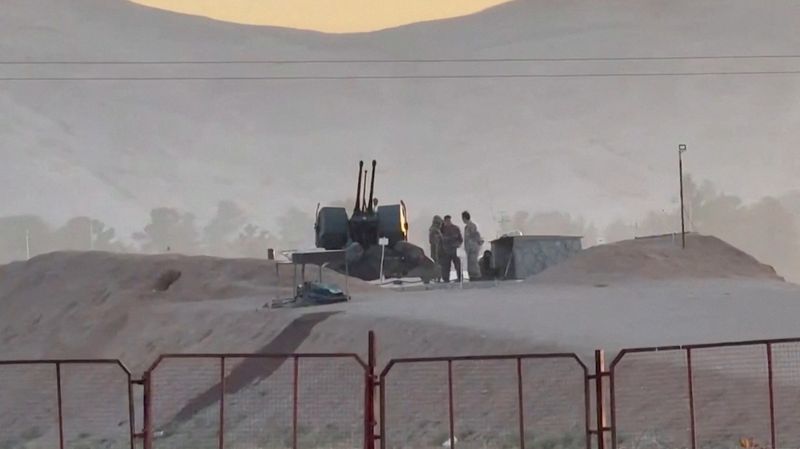
Israel’s assault on Gaza began after Hamas Islamists attacked Israel on Oct. 7, killing 1,200, according to Israeli tallies. Israel’s military offensive has killed 34,000 Palestinians in Gaza, according to the Gazan health ministry.
Iran-backed groups have declared support for Palestinians, carrying out attacks from Lebanon, Yemen and Iraq, raising fears the Gaza conflict was growing into a wider regional war.

 Forex2 years ago
Forex2 years agoForex Today: the dollar is gaining strength amid gloomy sentiment at the start of the Fed’s week

 Forex1 year ago
Forex1 year agoUnbiased review of Pocket Option broker

 Forex2 years ago
Forex2 years agoHow is the Australian dollar doing today?

 Forex2 years ago
Forex2 years agoDollar to pound sterling exchange rate today: Pound plummeted to its lowest since 1985

 Cryptocurrency2 years ago
Cryptocurrency2 years agoWhat happened in the crypto market – current events today

 World1 year ago
World1 year agoWhy are modern video games an art form?

 Stock Markets2 years ago
Stock Markets2 years agoMorgan Stanley: bear market rally to continue

 Economy2 years ago
Economy2 years agoCrude oil tankers double in price due to EU anti-Russian sanctions



